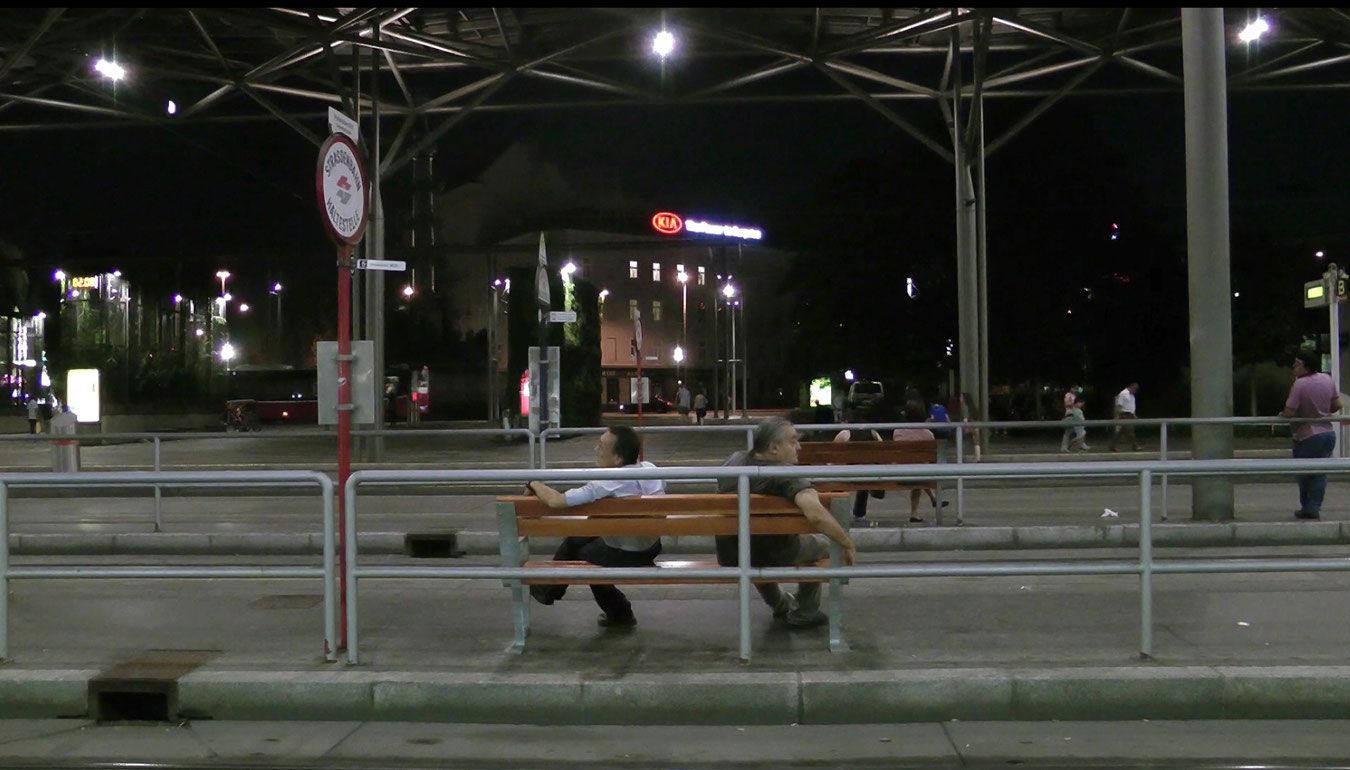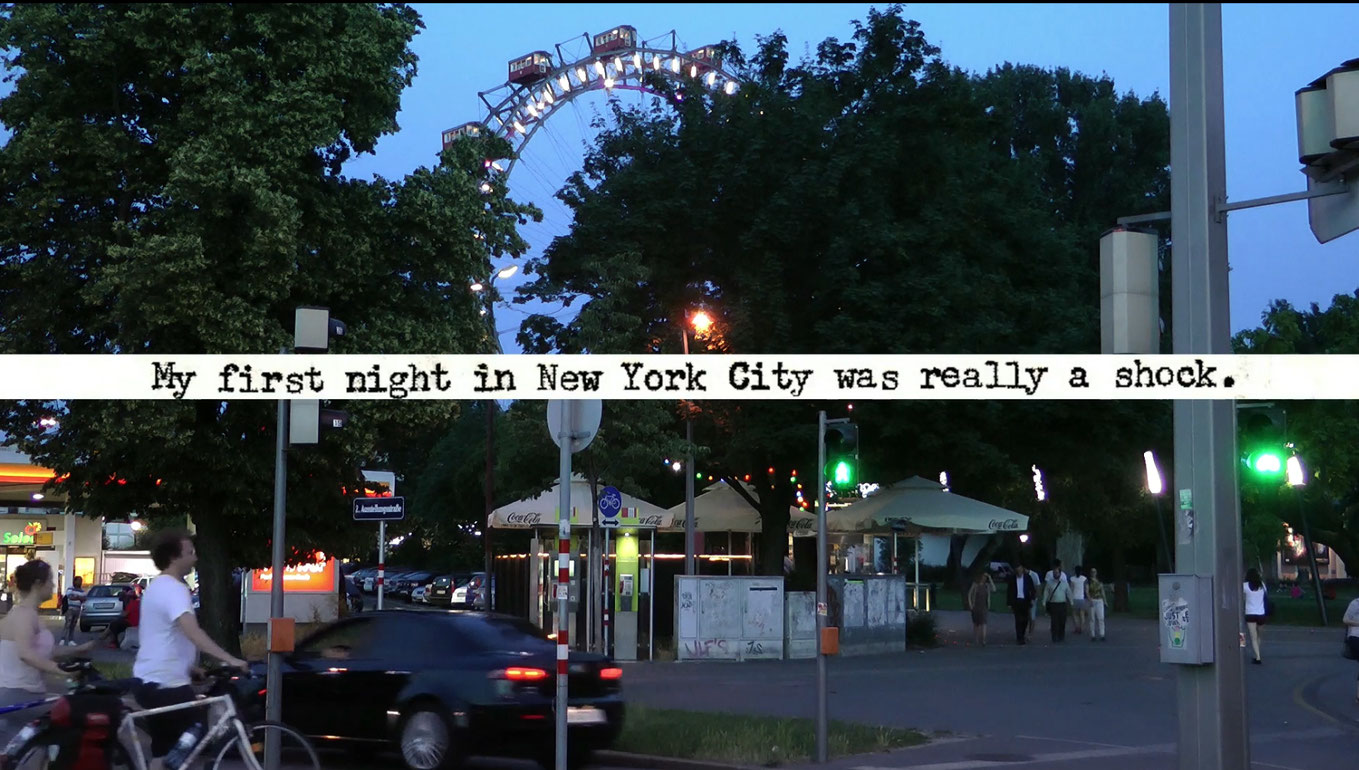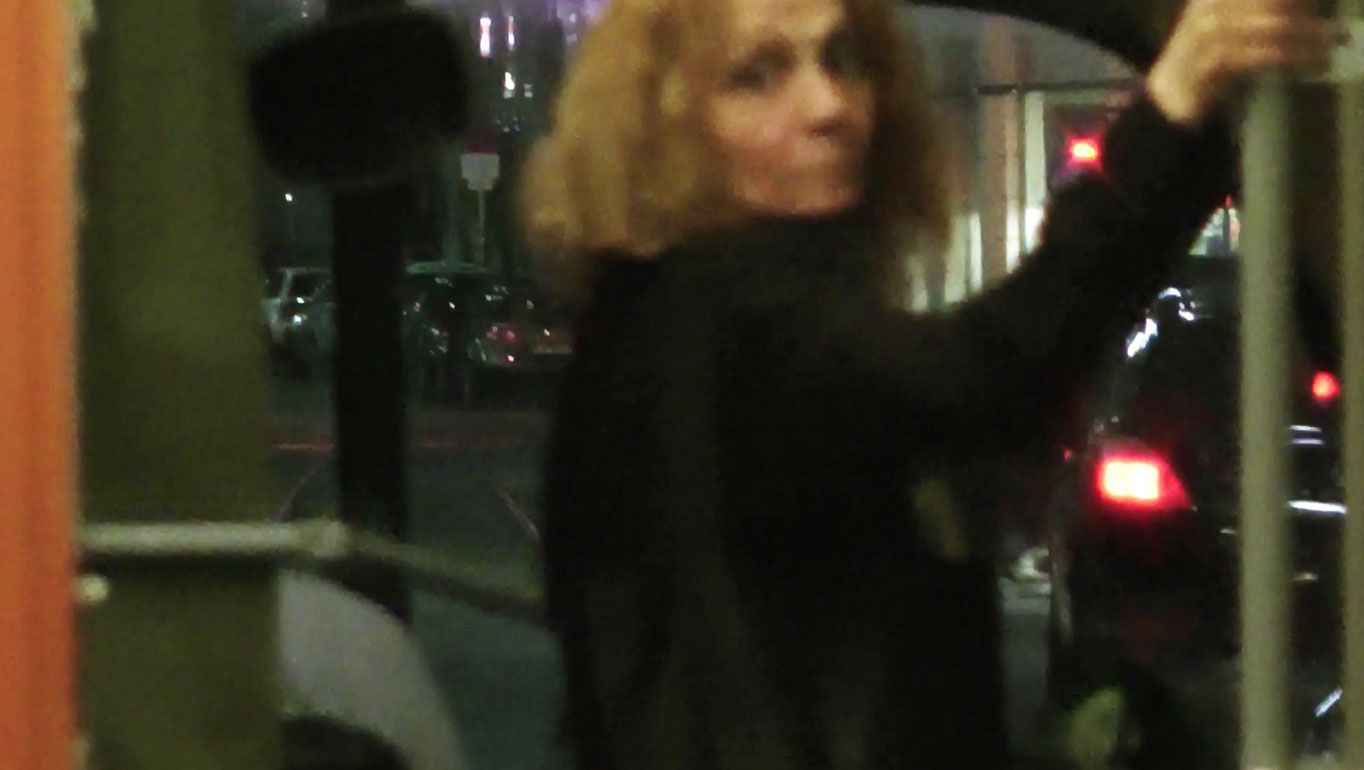Dear John
An ‘A’, out of focus, on a pink background – the first letter of a journey that does not lead to ‘Z’, even if includes many letters: these are of a postal rather than an alphabetical nature. The letters exchanged connect two worlds, one lived in the USA and the other in Vienna. The signpost ‘A’ marks a house somewhere in America that was located by filmmaker Hans Scheugl using Google Street View, and it represents the unexpected rediscovery of a nearly forgotten friend named John. Scheugl could have started a new life with him in the USA, 50 years ago. “Dear John,” says Scheugl with a Viennese accent, as first snapshots of the city are seen and a streetcar ride destined for the Prater commences. The camera glides down streets through which sentences from John’s letters time and again drift. Reflections are everywhere. Dear John is a convoluted film of remembrance, a documentary reflection fantasy about an imaginary existence. Scheugl describes how he has forgotten John’s voice and remembers his body only vaguely – his memory is as blurry as the ‘A’ that stands for John’s current life at the outset of the film.
Scheugl poetically reconstructs the idea of a lost existence by means of multi-faceted correspondences, both written and visual. Random pictures of pubs today accompany stories about nights of youthful happiness, interjected by John’s invitations and reports of “breadless” or unprofitable art, memorable encounters, and his horror of being drafted into the army at the onset of the Vietnam War. Images from a short beefcake film, The Cyclist and the Werewolf, serve as a leitmotif and dreamlike counterpart to the Ghost Trains of the Prater. In the end, the film discovers another ‘A’ at the base of the amusement park’s Ferris wheel. Dear John describes a ring that cannot come full circle. The distance between the two lives remains unbridgeable, regardless how sensitively the two men approach one another. This is a moving film in every respect.
(Christoph Huber)
Translation: Eve Heller
Dear John
2015
Austria
42 min



